
In the area that our first missionaries went in Chad and Cameroon, there were around 25 different people groups, each with their own language and culture. The financial sacrifices of our sending churches enabled us to translate the entire Bible into seven of those languages and the New Testament into eleven others!
With the Scriptures in their own languages, many have come to know the Lord. Churches have been planted in many villages and the number of Christians in that area of Chad and Cameroon is ten times larger than the Church of the Lutheran Brethren here in North America.
Recent Update
Nathanael shares a fascinating glimpse into the translation process.
Recently, a translation team “village tested” the drafts of the books of Acts and 1 Samuel. This is a process where the reading is heard by native speakers and assessed for comprehension. We praise God for the ongoing progress of translating the Word of God into the heart language of these people!
Recently, a translation team “village tested” the drafts of the books of Acts and 1 Samuel. This is a process where the reading is heard by native speakers and assessed for comprehension. We praise God for the ongoing progress of translating the Word of God into the heart language of these people!
Statistics
CLB Bible Translations
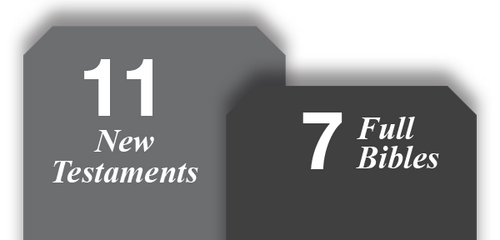
Since arriving in Africa over in the early 1900's, CLB missionaries have translated 11 New Testaments and 7 full Bibles.
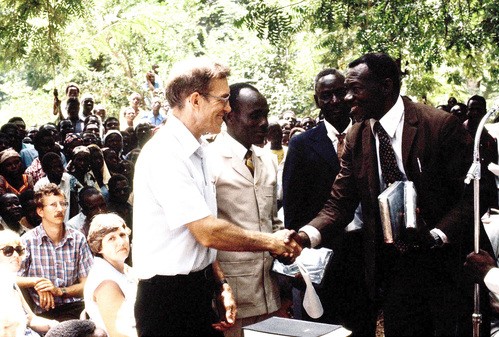
Missionary Don Raun at the dedication of the Moundang language Bible (1983).
Translation Work Today
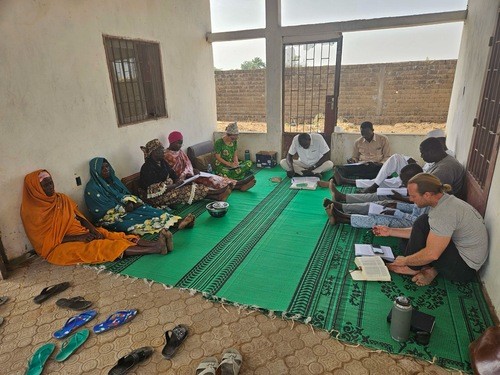
What is the gospel we preach? If you are a foreigner learning to communicate God’s Word in an un-written language, this is a technical question. What words do we use for “cross” or “tomb”? The answer is not necessarily obvious. I was sent to be an evangelist to a specific people group, so I better figure this out! The best way to do this is to start translating the Bible. We hire local people to listen to Scripture and then express that Scripture, verse by verse, in their own words. The process helps us make decisions about key terms like “righteousness” and “grace,” along with biblical names and spellings.
For the first several years of our work in Chad, we worked on translation one book at a time, during rainy season, when we could not live in our village of Boudamasa. But now we have a team of trained translators to do the initial draft. Two of them are Christian, and the third is a Muslim. We are still heavily involved in checking the translation, but so grateful that the Lord has provided these partners. Recently we hosted a week-long workshop in Boudamasa to check the translation of the Gospel of Luke (see photo below). We invited key people from our village to come and listen, and help us discuss some of the stickier issues—like how to translate “commandment.” Through this process many people are hearing the message of the gospel, and we submit all of this to the work of the Holy Spirit among the Bagirmi.
Nathanael is a missionary in Chad.
For the first several years of our work in Chad, we worked on translation one book at a time, during rainy season, when we could not live in our village of Boudamasa. But now we have a team of trained translators to do the initial draft. Two of them are Christian, and the third is a Muslim. We are still heavily involved in checking the translation, but so grateful that the Lord has provided these partners. Recently we hosted a week-long workshop in Boudamasa to check the translation of the Gospel of Luke (see photo below). We invited key people from our village to come and listen, and help us discuss some of the stickier issues—like how to translate “commandment.” Through this process many people are hearing the message of the gospel, and we submit all of this to the work of the Holy Spirit among the Bagirmi.
Nathanael is a missionary in Chad.
The Next Generation
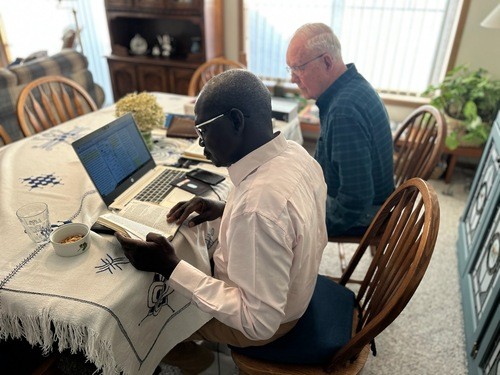
Salomon was my best friend growing up. His dad was a lay pastor in a small Pévé community in southwest Chad. My parents, Rodney and Helen Venberg, served there for 18 years as missionaries. My dad was called to the task of translating the New Testament into this formerly unwritten language. He created an alphabet and, along with a couple national helpers, translated the New Testament into the Pévé language.
When Rachel and I became missionaries in Chad, I reconnected with Salomon. He now lives in the city and owns his own successful business as an electrician.
A few years ago, Salomon felt a burden to see the entire Bible translated into Pévé. He felt a calling to continue the work that my dad had started. He and a couple other Pévé pastors pursued some training, and as a team, started translating the Old Testament. First the book of Ruth, and then Jonah. Earlier this year, Salomon made a trip to Fergus Falls, Minnesota, and spent three days with my dad, working through the draft of Exodus. Even though it’s been nearly 40 years since my dad worked with the Pévé language, he was thrilled to be a part of this new work in a consultant role.
What a joy it is to see Salomon, who as a boy first read the Word of God in his own language, now investing his own time and resources to continue the work, so that one day his people can hold in their hands the full Bible in their heart language. This is God’s mission. We’re called to simply follow him, and make disciples. And maybe, 40 years later, God will surprise you too with the fruits of your labor.
Dan Venberg is the Director of Lutheran Brethren International Mission.
When Rachel and I became missionaries in Chad, I reconnected with Salomon. He now lives in the city and owns his own successful business as an electrician.
A few years ago, Salomon felt a burden to see the entire Bible translated into Pévé. He felt a calling to continue the work that my dad had started. He and a couple other Pévé pastors pursued some training, and as a team, started translating the Old Testament. First the book of Ruth, and then Jonah. Earlier this year, Salomon made a trip to Fergus Falls, Minnesota, and spent three days with my dad, working through the draft of Exodus. Even though it’s been nearly 40 years since my dad worked with the Pévé language, he was thrilled to be a part of this new work in a consultant role.
What a joy it is to see Salomon, who as a boy first read the Word of God in his own language, now investing his own time and resources to continue the work, so that one day his people can hold in their hands the full Bible in their heart language. This is God’s mission. We’re called to simply follow him, and make disciples. And maybe, 40 years later, God will surprise you too with the fruits of your labor.
Dan Venberg is the Director of Lutheran Brethren International Mission.
